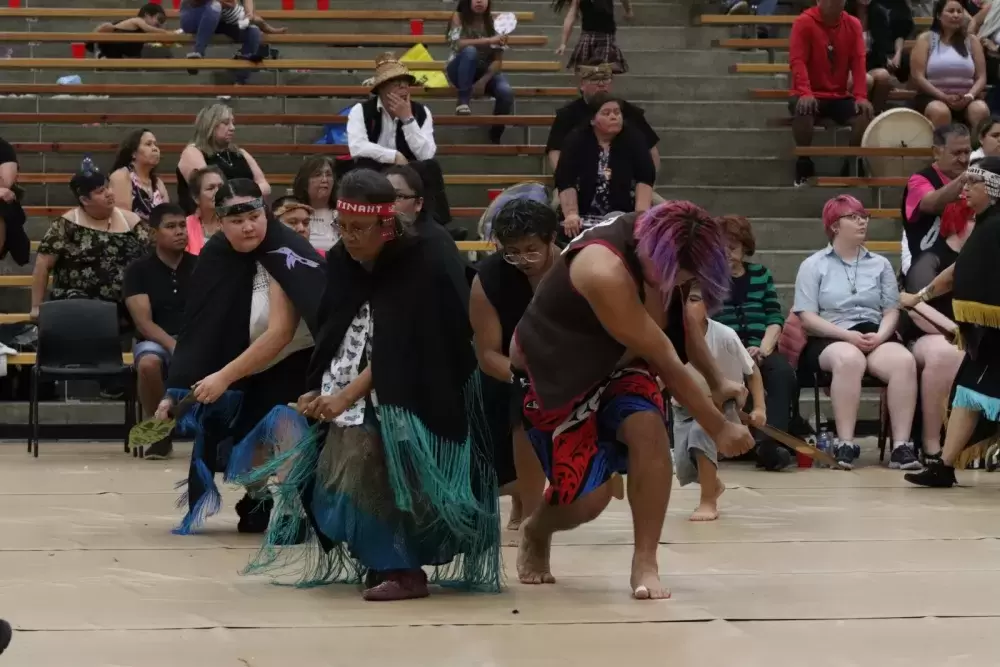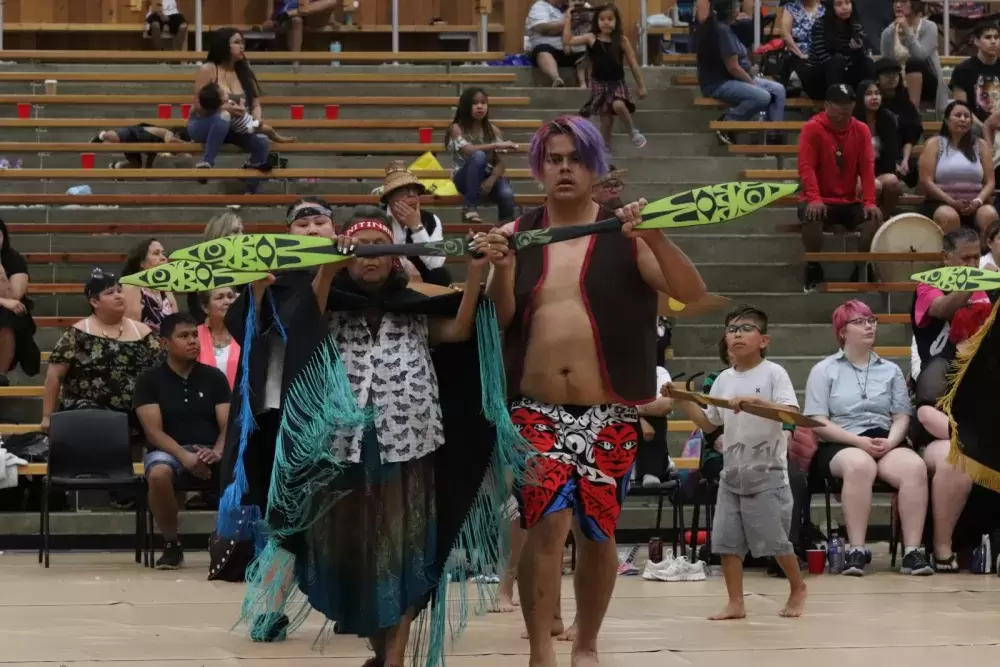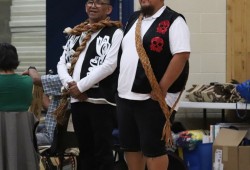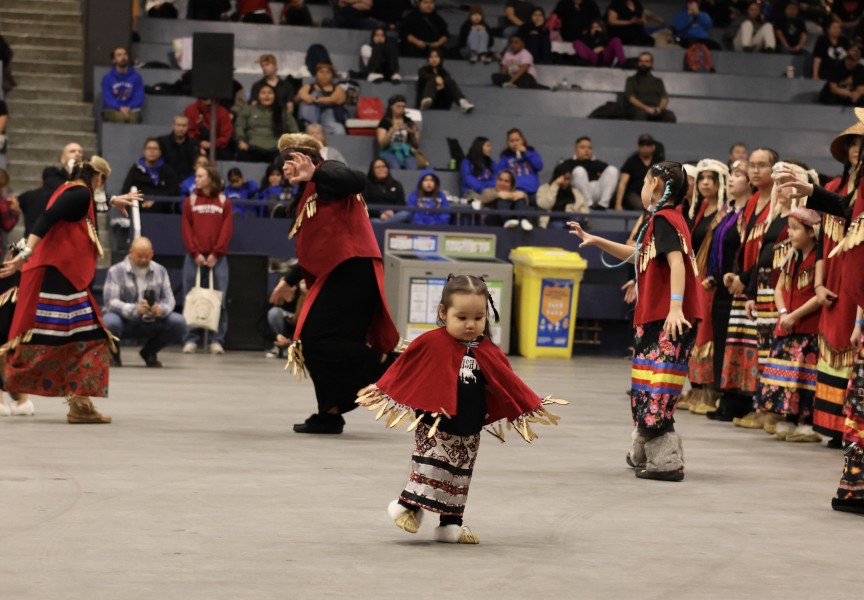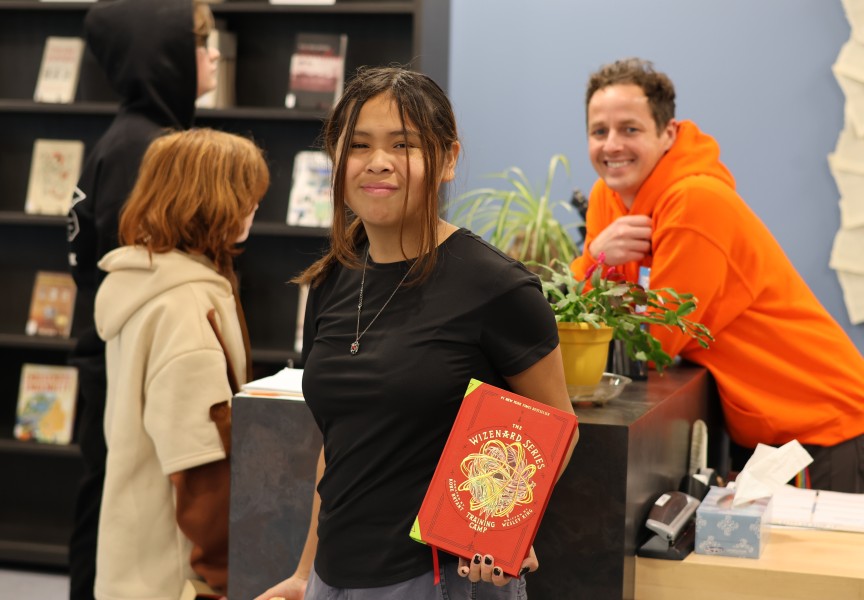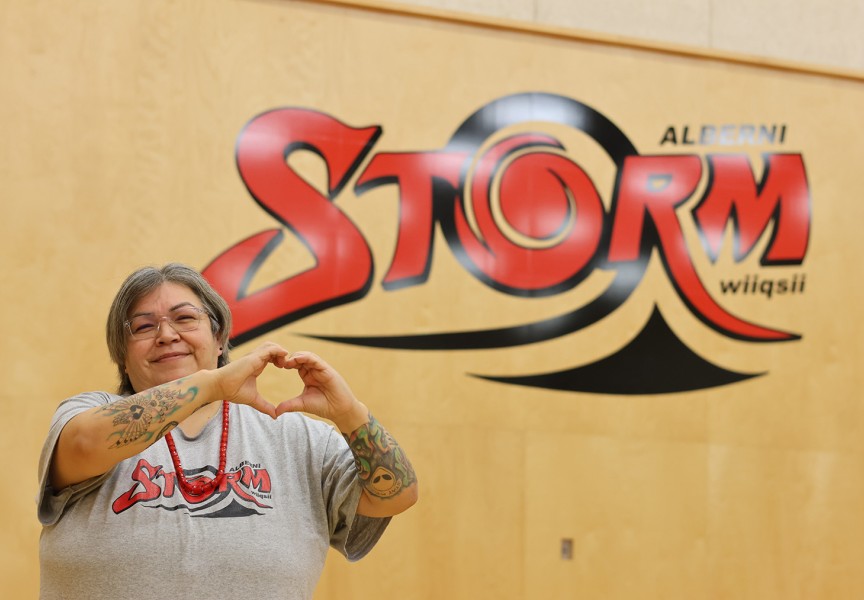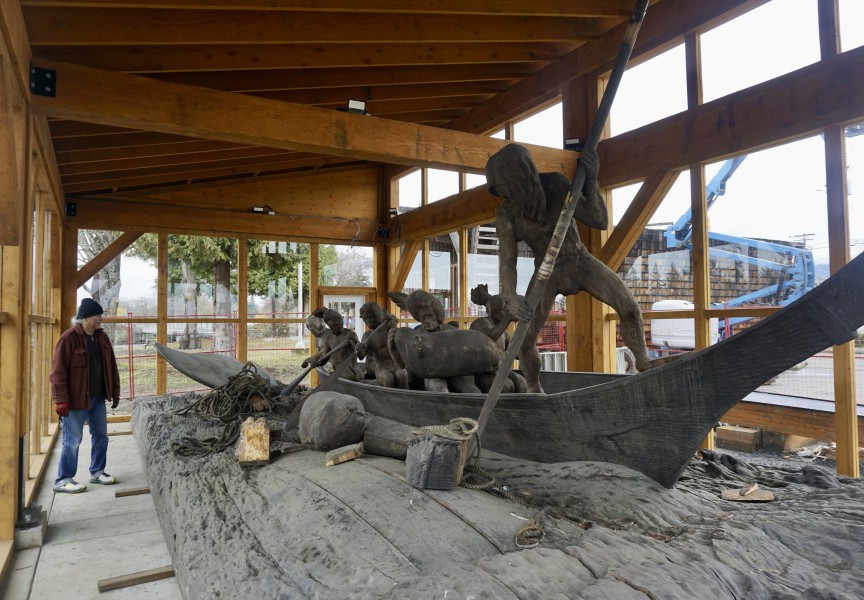On Saturday, May 20 at the Alberni Athletic Hall family and friends came out of grieving for late-Wilson Haiyupis of Ahousaht and Mowachaht/Muchalaht.
“He was a really nice guy,” said Sam Haiyupis, Wilson’s father and host of the łaakt’uuła. “He was outgoing and friendly and had a great sense of humor.”
Wilson was initiated into Hamatsa, a sacred dance that required lengthy training, said his uncle, Jerry Jack Jr, a hereditary chief of Mowachaht/Muchalaht. Adam Dick, an elder, trained Wilson extensively when he was younger, he continued.
“He was so proud to carry [Hamatsa] for his grandpa Jerry,” shared Wilsons’ mother Beverly Jack of the Jack and Little family.
Wilson passed from asthma-related complications over two years ago. He was living at Nitinaht Lake at the time with his spouse and young daughter. He was an active member, working a variety of jobs throughout the community.
For Haiyupis, it was difficult to have his son pass away during the pandemic when the restrictions were still in place.
“It's so unlike our people,” said Haiyupis. “It was really different; the whole approach to everything was different.”
Haiyupis said he knew he had to get to work when Jack mentioned the łaakt’uuła. As soon as the restrictions were lifted they began to organize. A łaakt’uuła is a type of a memorial potlatch, which allows family and loved ones to conclude their grieving period in honour the person who is gone.
In preparing for the łaakt’uuła, Haiyupis said that he knew it would help him and his family.
The łaakt’uuła began just before noon. Cliff Atleo spoke in Nuu-chah-nulth on behalf of the family, explaining the purpose of the łaakt’uuła alongside doing the curtain acknowledgement. Following this, those who had recently lost family members were acknowledged.
Throughout the łaakt’uuła Robert Scott Watts was the speaker on behalf of the host.
The sound of the drums started from Sam Haiyupis and his family. Once they completed their first song, another drumming circle emerged from the crowd. Two others started from various spaces throughout the hall.
After lunch was served, the floor was cleansed. The host's family danced a paddle song and acknowledged Wally and Donna Samuel “for all their work they do within our community,” said Haiyupis. The two were presented with paddles made by the host.
“They’re always there, just to help people, basically with anything,” said Haiyupis.
Next was the Robin Dance, by young performers.
The floor then opened up. Between songs and dances, presentations continued throughout the day. The Edgar family, whom Wilson’s daughter Emily and spouse Melony belong to, were presented with paddles made by the host to express his gratitude for taking care of his son while he was living at Nitinat and to acknowledge the connection between their families, shared Haiyupis.
In an interview with Ha-Shilth-Sa Haiyupis said that the paddles depict a hummingbird, inspired by his late-son.
When Ditidaht took to the floor they danced with those very paddles.
For Haiyupis it was very important traditionally acknowledge the Ha’wiih of Nitinat, at the łaakt’uuła, to thank them for having his son be laid to rest in their territory. In another presentation, the host acknowledged, thanked, and introduced Monica Shelley Tom and Wilsons’ two children who live in Victoria.
For Haiyupis, this is his first time hosting a łaakt’uuła. He said that he is thankful for the cultural teachings that were passed down to him from his elders, his father, and late-uncle.
“It was all for my son. I did everything I could for my son because I know his spirit is with us and it was with us on that day,” said Haiyupis. “It’s always with us.”
Haiyupis summarized the emotions he experienced at the łaakt’uuła as “extreme happiness, love, and respect.”
The łaakt’uuła ended at 6 a.m. and concluded with Jack’s family song, called Hingeetz.
When there were a few people remaining at the hall, Beverly Jack presented Haiyupis with a vest, which formerly belonged to Wilson. The design on the back of the vest was made for her late-father Jerry Jack Sr.’s memorial potlatch, said Jack in an email to Ha-Shilth-Sa.
She acknowledged him for the work that he had done over the last couple years, said Haiyupis.
“[It] was pretty amazing,” said Haiyupis.

